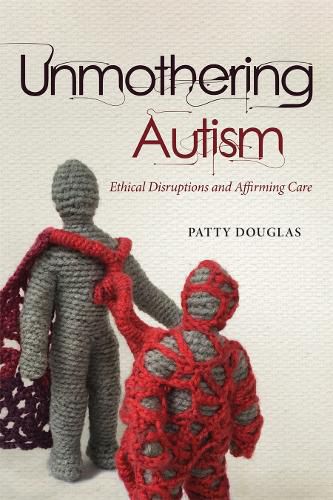Readings Newsletter
Become a Readings Member to make your shopping experience even easier.
Sign in or sign up for free!
You’re not far away from qualifying for FREE standard shipping within Australia
You’ve qualified for FREE standard shipping within Australia
The cart is loading…






As global rates of autism diagnosis rise, dominant cultural representations continue to define autism as a tragic neurological disorder. And mothers - as primary caregivers and advocates - are centrally implicated in the impulse to find both cause and cure. How should we care about autism and autistic people?
Unmothering Autism emerged from Patty Douglas's desire to understand a contradiction: she and her two sons (one autistic) experienced beauty living together, while their public encounters with doctors, school professionals, and agencies were fraught and sometimes violent. In this book, Douglas offers a critical history of popular and biomedical assumptions about autism, expressed through shifting social constructs that blame or valorize maternal care. Throughout, she also intersperses her own insights and shares conversations she has had with other "autism mothers."
Unmothering Autism theorizes an "ethics of disruption," reorienting us to autism and autistic people as valuable and fundamentally human. It centres the previously marginalized perspectives of mothers and autistic individuals to affirm their knowledge of living well together in, and through, difference.
$9.00 standard shipping within Australia
FREE standard shipping within Australia for orders over $100.00
Express & International shipping calculated at checkout
As global rates of autism diagnosis rise, dominant cultural representations continue to define autism as a tragic neurological disorder. And mothers - as primary caregivers and advocates - are centrally implicated in the impulse to find both cause and cure. How should we care about autism and autistic people?
Unmothering Autism emerged from Patty Douglas's desire to understand a contradiction: she and her two sons (one autistic) experienced beauty living together, while their public encounters with doctors, school professionals, and agencies were fraught and sometimes violent. In this book, Douglas offers a critical history of popular and biomedical assumptions about autism, expressed through shifting social constructs that blame or valorize maternal care. Throughout, she also intersperses her own insights and shares conversations she has had with other "autism mothers."
Unmothering Autism theorizes an "ethics of disruption," reorienting us to autism and autistic people as valuable and fundamentally human. It centres the previously marginalized perspectives of mothers and autistic individuals to affirm their knowledge of living well together in, and through, difference.